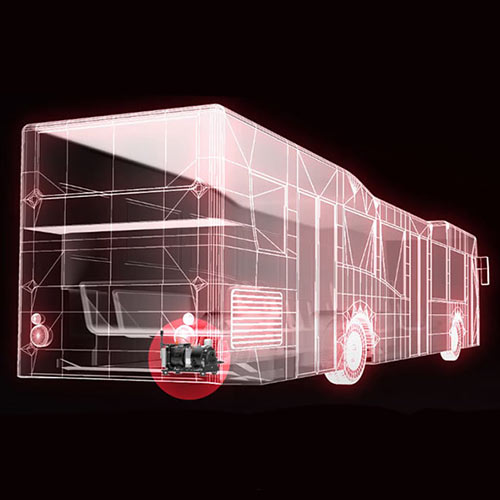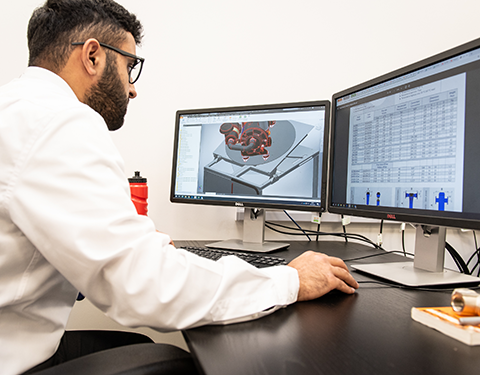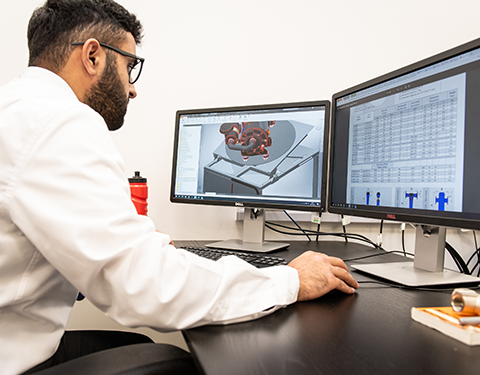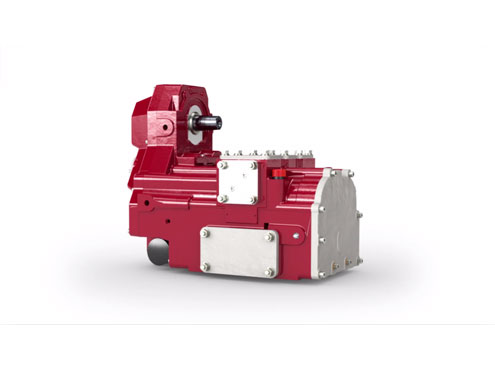C'est à ce moment-là que Gardner Denver Transport a été contacté. L'ARCC a découvert le travail antérieur de la société avec Wrightbus en 2012, qui a vu les compresseurs Hydrovane installés sur 1000 nouveaux bus Routemaster londoniens à propulsion hybride. L'entreprise australienne souhaitait en savoir plus sur le projet et sur la manière dont l'ensemble final a été développé pour prendre en charge toutes les fonctions pneumatiques embarquées.
Après une première conversation, l'ARCC a visité les installations de Gardner Denver à Redditch pour mieux comprendre comment l'entreprise pouvait soutenir le déploiement de ses propres véhicules électriques. David Evans de l'ARCC a rencontré l'équipe d'experts en mobilité électronique de Gardner Denver Transport qui a recommandé le TA02, le même modèle de compresseur qui a été installé avec succès dans le cadre du projet New Bus for London.
Dion Pearson, responsable des ventes pour Gardner Denver Transport en Australie, explique comment ce projet s'est développé : "Il était clair que l'ARCC avait besoin d'un partenaire engagé pour atteindre ses objectifs. Percer sur un marché établi est difficile dans le meilleur des cas, en particulier lorsqu'il s'agit d'introduire une technologie nouvelle ou non éprouvée, c'est pourquoi l'entreprise avait besoin d'un partenaire capable de garantir l'excellence et un soutien continu
Le travail a été un tel succès que l'ARCC a ensuite chargé Gardner Denver de travailler sur son dernier prototype d'autobus fonctionnant à l'hydrogène. Ayant besoin d'un compresseur plus léger et plus robuste, Gardner Denver a proposé un nouvel ensemble utilisant le TX02. Ce modèle est parfaitement adapté aux entraînements électriques, grâce à son intégration simple, sa conception légère et son fonctionnement silencieux. Le TX02 est également exempt de vibrations, ce qui garantit aux passagers et aux piétons un voyage confortable - une considération essentielle pour les opérateurs de ce marché.
Comme l'ajoute Pearson, le projet ARCC souligne la façon dont Gardner Denver Transport est capable d'utiliser son expertise centralisée au Royaume-Uni aux côtés des centres de service locaux : "Nous avons fait bon usage de notre réseau international et de notre présence régionale ici en Australie pour fournir une solution transfrontalière rapide et efficace au client. Notre équipe s'est coordonnée avec le siège au Royaume-Uni et, malgré le décalage horaire, a été en mesure de respecter le calendrier et le budget du projet
 France (FR)
France (FR)





